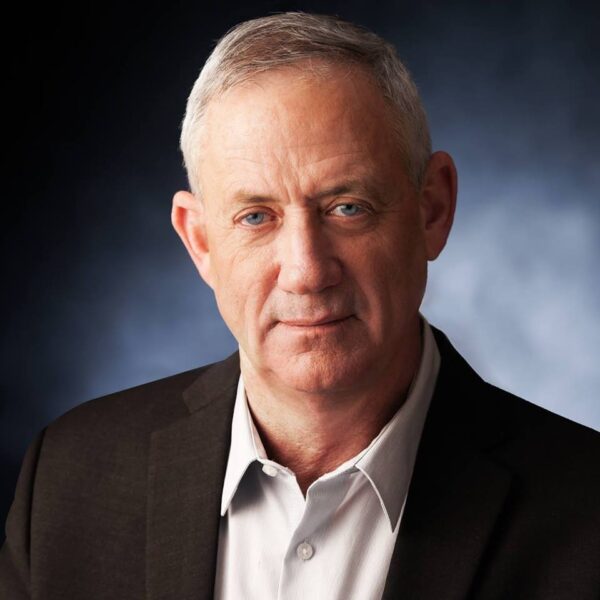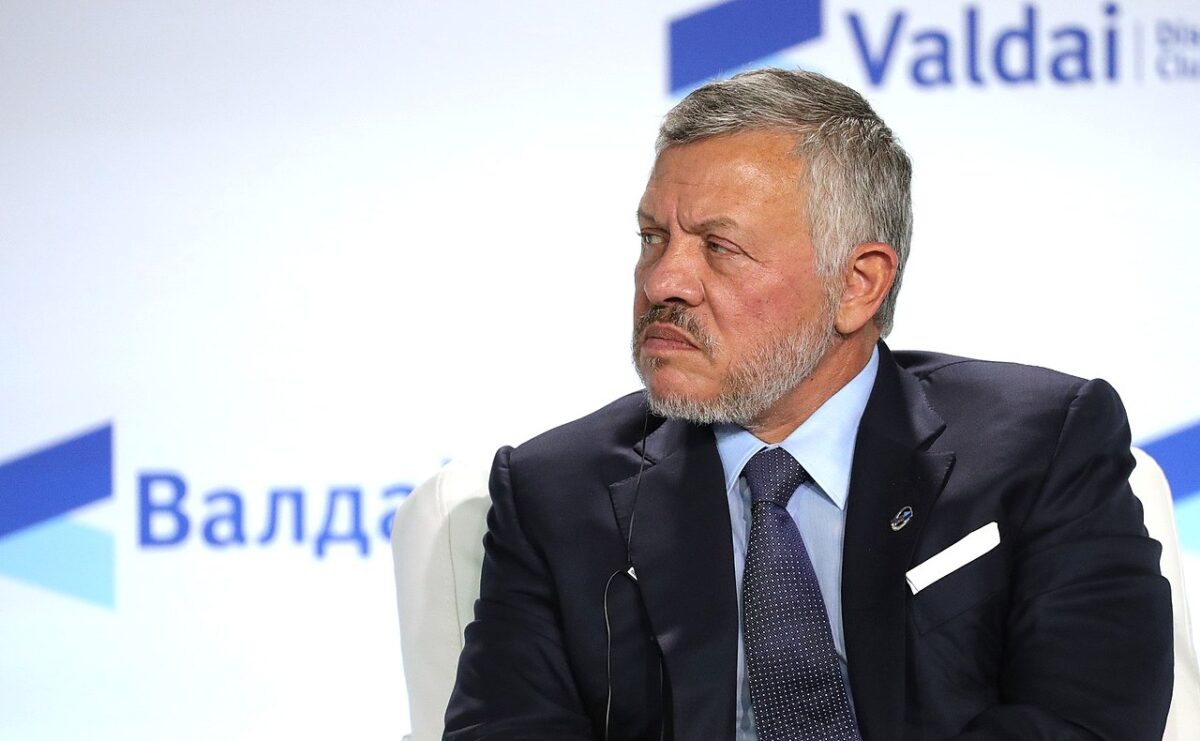Israel’s chilly bilateral relations with Jordan may be thawing following a series of recent meetings between Israeli and Jordanian leaders.
In the past few weeks, Defence Minister Benny Gantz has met King Abdullah II and Foreign Minister Gabi Ashkenazi has conferred with Foreign Minister Ayman Safadi to discuss a range of political and economic issues of mutual concern.

These meetings took place in Jordan, one of Israel’s key regional partners, and came to light only after they had been held.
Once enemies, Israel and Jordan have been non-belligerents since their historic 1994 peace treaty. It was signed shortly after the launch of the Oslo peace process between Israel and the PLO, the internationally recognized representative of the Palestinians.
In recent years, however, Israel’s bilateral relationship with Jordan has deteriorated markedly due in large part to Israel’s worsening ties with the Palestinian Authority.
Jordan’s relations with Israel reached “an all-time low” in 2019, according to King Abdullah II, who succeeded his father, King Hussein, 22 years ago.
Abdullah was infuriated by Prime Minister Benjamin Netanyahu’s announcement that Israel, in line with U.S. President Donald Trump’s Middle East peace proposal, intended to annex the Jordan Valley and all of Israel’s settlements and outposts in the West Bank. Jordan relinquished its territorial rights to the West Bank long ago, but has resisted Israeli colonization efforts there.
Abdullah was also upset by reports that Israel might alter the status quo at the Temple Mount in eastern Jerusalem, which has been under Jordanian custody since the 1967 Six Day War.
Due to these converging factors, Jordan terminated a special annex in its peace treaty with Israel, forcing Israeli farmers to vacate two enclaves in Jordan, the first near the Jordan River and the second in the southern Negev Desert, they had leased from the Jordanian government.
And in a symbolic gesture of pique aimed directly at Israel, Jordan failed to commemorate the 25th anniversary of the peace treaty, while King Abdullah II conspicuously severed communications with Netanyahu by refusing to take his telephone calls.
To top it all off, Jordan recalled its ambassador in Tel Aviv after two Jordanian civilians were killed by an Israeli embassy security guard in Amman.
Amid these tribulations, Israel and Jordan — which fought three wars from 1948 to 1973 — managed to preserve their strong under-the-radar security and intelligence cooperation, which has stabilized their long common border.
Israel, meanwhile, continued sending Jordan 50 billion cubic meters of water per annum and selling it a plentiful supply of natural gas.
And both countries left in place the Qualified Industrial Zones, a joint Israeli-Jordanian venture that enables Jordan to export millions of dollars worth of duty-free goods to the United States.
Israel’s relations with Jordan began to improve last August when Netanyahu grudgingly suspended his plan to annex the Jordan Valley after signing a normalization agreement with the United Arab Emirates.
Two months after this landmark development, the Israeli and Jordanian authorities signed a new aviation accord that permits commercial flights over their respective air space.
More recently, Jordan has requested permission from Israel to increase exports to the West Bank from the current $100 million to $500 million a year, while Jordanian Prince Hassan bin Talal has spoken of advancing joint projects in the fields of water, energy and the environment.
In the wake of his meeting with King Abdullah II, Gantz expressed the hope that more projects of this kind can be initiated in the near future.
Gantz acknowledged that Israel-Jordan relations have languished of late. “I think Jordan is a great asset to Israel,” he said. “I think that our relationship could be a thousand times better.”
Suggesting that Netanyahu has been an impediment to improved relations, he added, “Unfortunately, Netanyahu is an unwanted figure in Jordan.”
Netanyahu is indeed a problematic factor in Israel’s relations with Jordan.
In 1997, during his first term of office, he authorized what turned out to be a botched Mossad operation to assassinate Khaled Mashaal, a Hamas leader, in Amman. King Hussein threatened to sever ties with Israel unless it provided an antidote to save Mashaal’s life and released Sheikh Ahmed Yassin, Hamas’ spiritual leader, from prison.
Netanyahu complied with these demands with alacrity.
Netanyahu’s rejection of a two-state solution and his expansion of settlements in the West Bank has inspired anger in Jordan as well. As a result, popular support for Jordan’s peace treaty with Israel is at a low ebb, particularly among Jordanians of Palestinian descent, who comprise two-thirds of its population.

Despite these problems, Jordan has had no alternative but to work with Netanyahu. But as Ashkenazi learned in his three meetings with Safadi since late last year, the Jordanian government is heavily invested in promoting Palestinian statehood and is vehemently opposed to Israeli settlement construction in the West Bank.
After meeting Ashkenazi, Safadi said, “I emphasized that there is no alternative to the two-state solution, which embodies a sovereign Palestinian state with occupied Jerusalem as its capital along (the pre-1967) lines that can exist in peace and security alongside Israel in accordance with international law, as a way to achieve comprehensive peace.”

Ashkenazi, in his public comments, avoided the Palestinian issue altogether. “We discussed promoting commercial, economic and civic cooperation between our two countries as well as with the Palestinians,” he tweeted. “Our talks focused on trade, water, tourism and consular issues. We also spoke about regional developments (and) the common challenge of the coronavirus …”
These are important issues to both sides, but at the end of the day Israel cannot expect to enjoy neighborly relations with Jordan unless the Palestinian question is satisfactorily resolved within the framework of a two-state solution.
